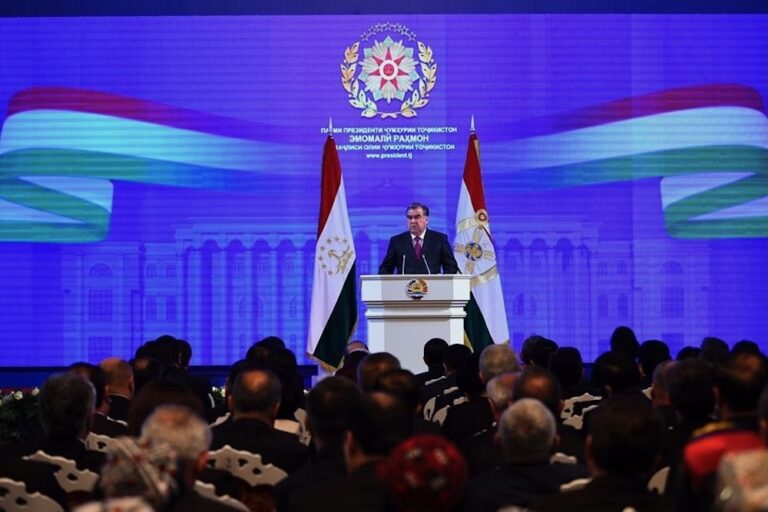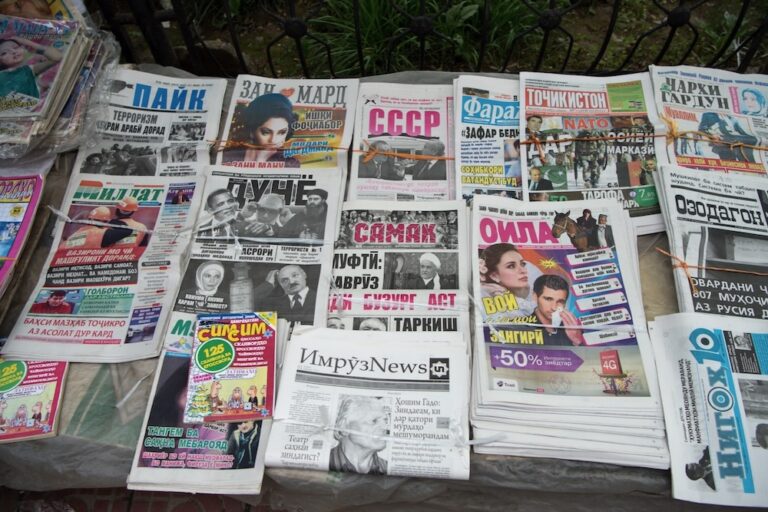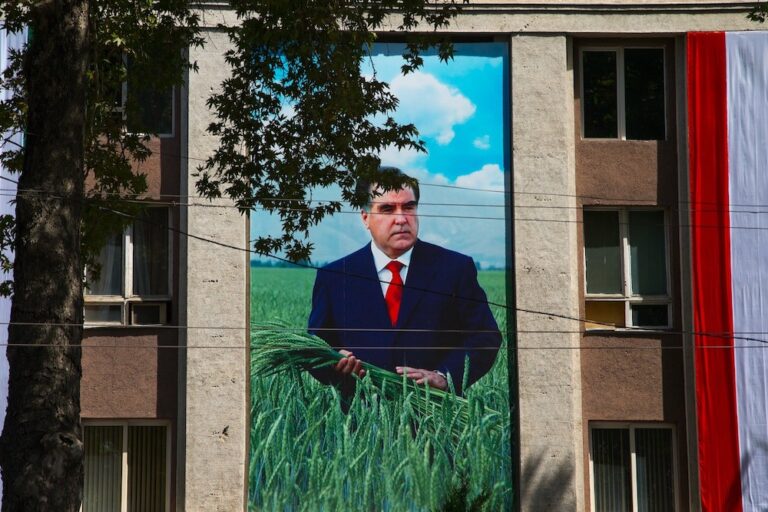(RSF/IFEX) – RSF has voiced concern at what it calls a “serious deterioration” of press freedom in the run-up to elections as authorities obstructed printing of three independent and opposition newspapers on 18 August 2004. The intervention comes only weeks after a physical attack on one journalist and repeated threats against another. “A full range […]
(RSF/IFEX) – RSF has voiced concern at what it calls a “serious deterioration” of press freedom in the run-up to elections as authorities obstructed printing of three independent and opposition newspapers on 18 August 2004. The intervention comes only weeks after a physical attack on one journalist and repeated threats against another.
“A full range of tactics is being used to silence the few independent voices [in this country],” RSF said.
The fiscal authority closed and sealed the offices of the privately-owned printer Jiyonkhon on 18 August, preventing the publication of three newspapers. The order came just as the printer was to begin a print run for the independent weekly “Nerui Sukhan”. According to the authorities, Jiyonkhon was using a larger amount of paper than was legally allowed for in its registration licence. It will remain closed pending investigation.
Jiyonkhon is the only printer in the country that will print the three opposition weeklies “Nerui Sukhan”, “Ruzi Nav” and “Najot”, the newspaper of the opposition Islamic Revival party. As a result of the fiscal authority’s decision, the country is deprived of three independent papers until further notice.
In a separate incident, on 16 August, the state printer Sanadvora refused to print opposition newspaper “Odamu Olam”, breaking its contract with the paper. The newspaper has not appeared since. No other printer will take it over.
The obstructions come as working conditions for journalists continue to worsen in the country.
Mavluda Sultonzoda, a reporter for the opposition weeklies “Ruzi Nav” and “Nerui Sukhan”, received telephone threats after writing an article headlined “Who is Rakhmonov?”, in which she criticised President Emomali Rakhmonov and his government. According to Sultonzoda, she has been receiving threats since December 2003. For the first time, however, threats were also made against her family (see IFEX alert of 13 August 2004).
Only a few days earlier, on 29 July, “Ruzi Nav” editor-in-chief Rajabi Mirzo was attacked in Dushanbe. Witnesses say an assailant waited several hours at a bus stop on Profsoyuz Avenue for the journalist to return home, then beat him on the head with a blunt instrument before fleeing. Mirzo said he believes the attack was linked to his articles exposing government corruption (see alert of 3 August 2004). The Dushanbe prosecutor’s office has opened an investigation into the case.
RSF has appealed to President Rakhmonov to “ensure that Rajabi Mirzo’s assailants do not enjoy impunity and that official procedures are not used as an excuse to silence the press.”


